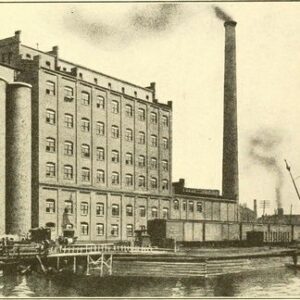
- This project has passed.
YSI – Economic History Graduate Webinar: First meeting – Meredith M. Paker
YSI - Economic History Graduate Webinars 2020
Start time:
April 29, 2020 @ 2:00 pm - 3:00 pm
EDT
Location:
Online
Type:
Other

Description
*EVENT UPDATE: to access the webinar, please use ONLY the link sent separately by email. *
In this first session of the YSI – Economic History Graduate Webinar, Meredith M. Paker, PhD student at the University of Oxford, will present her work: The Slow Employment Recovery After the Early 1980s UK Recession
If you wish to attend, please register for the entire series here: https://forms.gle/LtqDgzoDtAojZg1S8
Attendees will receive by email on Wednesday morning the link to join the webinar.
The Slow Employment Recovery After the Early 1980s UK Recession
The early 1980s recession was a global economic event, but its effects on the UK labor market were particularly severe. Despite output recovering in 1981, the unemployment rate remained over 10% through 1987, higher than almost all other western countries. Taking the US as a comparison case, I analyze how the interacting forces of industrial reallocation, job polarization, and regional effects combined to create this early “jobless recovery” in the UK. Using newly digitized Employment Gazette data and ONS confidential data, I find that structural change contributed significantly to the sluggish employment recovery. Sectoral reallocation was larger and more persistent in the UK than in the US as economic activity rapidly shifted from manufacturing to services and finance. The marked regional disparities in the UK during this period can largely be attributed to the divergent experiences of industries in the 1980s, causing some regions to be structurally disadvantaged. Finally, while job polarization was occurring in the UK, a significant portion of these effects were due to the shifting industrial structure. I also consider possible drivers of this rapid structural change, connecting Dutch Disease models from the 1980s with more recent open economy structural change models. Lastly, I explore some of the labor supply consequences, considering the experiences of displaced workers, women, and minority groups.
Hosted by Working Group(s):
Organizers
Attendees
Maylis Avaro
Marc Adam
Charlie Cheesman
Bilal Moin
Yeasin Mohammad Amin
Matias Almeida Garzon
Thomas Weston
Arnav Kapur
ERTUGRUL CAM
Juan Pablo González
Alain Naef
Catharina Haensel
Tamer Güven
John O'Brien
Sarah Soeding
Eleonora Monaci
Duncan Roth